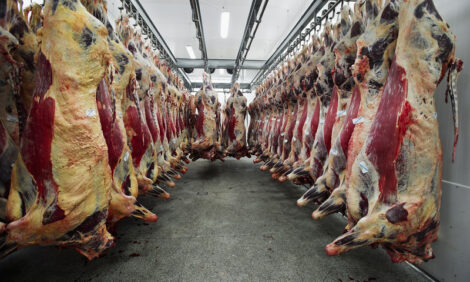



Trace Element Supplementation Demands Care
UK - Supplementing beef cattle and sheep with trace elements without sufficient care, precision or understanding may do more harm than good as well as being a significant waste of money, according the EBLEX. This is the clear warning from a specialist assessment of the most economically important trace elements in beef and sheep nutrition and their supplementation undertaken this spring by ADAS for EBLEX – the industry body for English beef and lamb levy payers.
Deficiencies of copper, cobalt, selenium and iodine can cause ‘ill thrift’ and infertility, confirms the report. While poor performance and productivity are often blamed on trace element deficiencies, however, it stresses that the real cause of such problems is far more often insufficient energy in the diet, gut parasite burdens or liver fluke infestations.
As well as being a significant waste of money, blanket trace element supplementation as an ‘insurance’ without reliable confirmation of actual deficiencies can easily make matters worse by causing detrimental mineral imbalances or interactions.
This danger is heightened by the major variations commonly found in the trace element status of grass and forage with soil conditions, sward components, fertiliser use and the growing season; as it is by marked variations in the trace element requirements of different breeds, classes and ages of stock.
Herbage analyses need careful interpretation, since the sample may not be representative of what the animal is eating when grazing diverse pastures and soil contamination can have a large influence on the levels found. Equally important is the wide variation in the effectiveness of different methods of supplementation.
To ensure the most appropriate and cost-effective trace element nutrition, the report recommends that beef and sheep producers:
- Understand specific stock, soil and herbage conditions that may cause deficiencies;
- Appreciate that purchased compounds are generally well-fortified with trace elements;
- Be aware that overfeeding trace elements can cause problems like copper toxicity;
- Confirm suspected deficiencies by herbage analysis and independent blood or tissue analysis before supplementing stock with extra trace elements;
- Recognise that free access minerals are useful but tend to be the least effective method of supplementation due to wide variations in individual animal intake; and,
- Monitor the productive responses to any supplementation to assess the extent to which it is cost-effective.
The ADAS report and a series of detailed farm case studies are currently being developed into an EBLEX booklet providing practical guidance on cost-effective beef cattle and sheep trace element supplementation. This will be available free of charge to levy payers from next month alongside other Better Returns manuals and advice notes at www.eblex.org.uk.
| TheCattleSite News Desk | Read more EBLEX News here |


